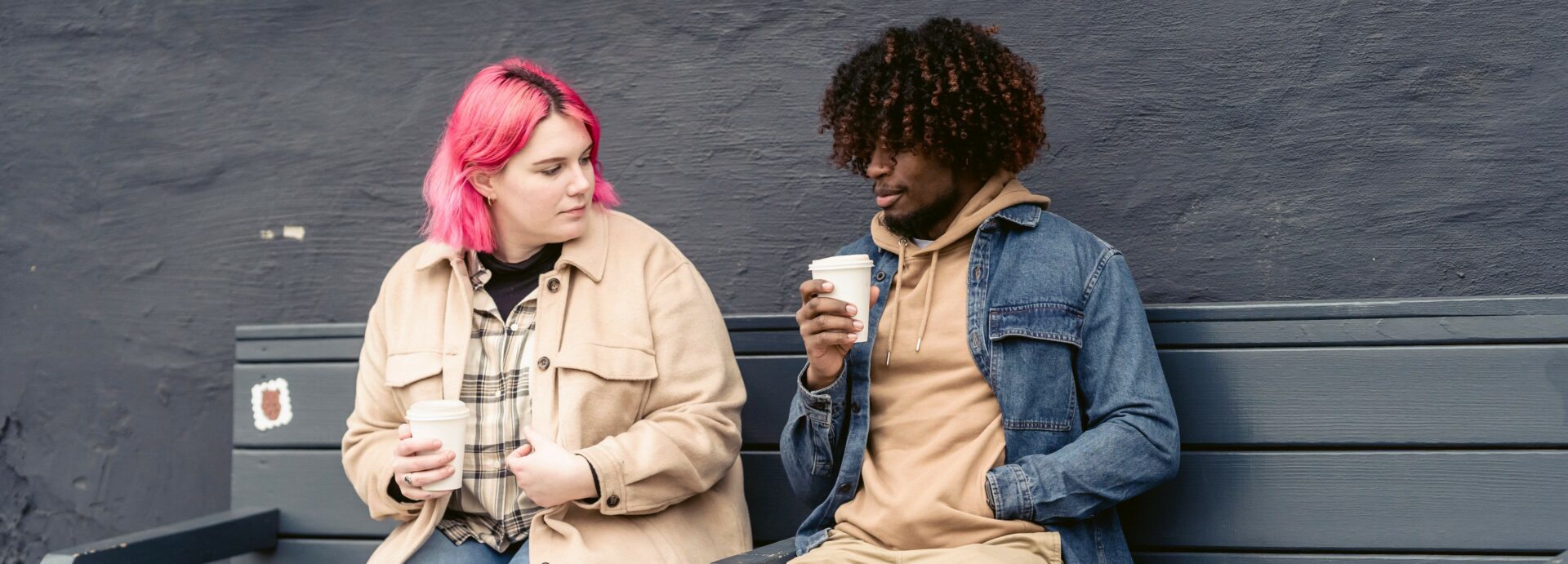The first few weeks after my father died, there were phone calls round the clock from friends and family members. Neighbors dropped off soups and casseroles at all hours and, for better and worse, our house teemed with visitors. In fact, there were times my mom and I wished for less company, more stillness. Grief is exhausting, and sometimes you just want to curl up alone and weep or fall asleep or stare out the window.
Everyone disappears
But then something unexpected happened two months after the funeral. Most people stopped checking in. There were rarely knocks on the door, or gift deliveries made. Suddenly there was silence, made all the more noticeable by the calm of our shrinking to-do list. We’d written the obituary and completed the funeral arrangements; my mom had filled out the endless forms, changed accounts to her name, applied for loans, and dealt with insurance. In this less busy phase, there were long stretches of time where the heartbreak was front and center. That’s when we really could have used companionship. But we’d fallen off the radar, it seemed; people had moved on with their lives and expected us to do the same.
It turns out that most people who grieve experience the same. In a 2017 New York Life Bereavement Survey, 1,004 Americans and 587 Millennials/Gen Xers were polled who had experienced the death of a parent before age 20. Over half (57%) reported that, following the loss, support from family and friends tapered off within the first 3 months; 20% say support tapered off after the first week and 21% say after the first month. Those grieving are often left wondering: Where did everybody go?
Post-death can be like post-birth
In the name of adding extra perspective, at least for women, the experience of post-death closely mirrors post-birth. When my daughter was born, those first few weeks were a sea of family and friends who wanted to check in and cuddle with the new baby. I was happy to see them, of course, but also hormonal and exhausted and overwhelmed by the sheer volume of people stopping by. A few weeks later, my husband went back to work and the visitors stopped coming. Understandably, they’d shown up and were moving on with their lives.
That’s when the loneliness and isolation kicked in for me, when I was desperate to talk to a grown-up. Mind you, I will never forget the extraordinary friends who continued to show up, even offering to stroll my daughter around the neighborhood so I could shower or nap. But that same question arose: Where did everybody go?
How to show up when others drop off
Grief does not just wither away after a few months. It weakens and intensifies on no particular time schedule, it grips us with no rhyme or reason. It’s not something most people realize until they’ve been through it personally. So if you have a friend or family member who’s grieving, here’s what you can do:
- Check in a couple of months after the funeral.
- Invite the person to do something: go for a walk, come over coffee, see a movie, anything. If they say no, that’s okay; asking is the important part.
- Bring over warm muffins or soup during the birthday or “deathiversary” of their person who died (mark it in your calendar).
- Send a text. You don’t need to say something “perfect.” You can just offer, “I know it’s been a few months since your person died, and I want to hear how you’re doing if you feel like talking about it.”
- Send a “thinking about you” card.
- Text a string of heart emojis.
- Just do something.
If you’re worried that reaching out might remind them of their person’s death just as they’re starting to move on, I can assure you this is not the case. No one is over grief in a few months or forgetting their person. You are only going to remind them that you care deeply about them, and they are not alone. So keep showing up, ask how they’re doing (no assumptions), and allow them to guide the conversations.
 Michelle Cove is the Director of Communications at Experience Camps for grieving children. She is an award-winning documentary filmmaker, journalist, and national bestselling author whose projects have been featured on numerous national platforms including “The Today Show,” The Washington Post, The Boston Globe, and The New York Times.
Michelle Cove is the Director of Communications at Experience Camps for grieving children. She is an award-winning documentary filmmaker, journalist, and national bestselling author whose projects have been featured on numerous national platforms including “The Today Show,” The Washington Post, The Boston Globe, and The New York Times.
